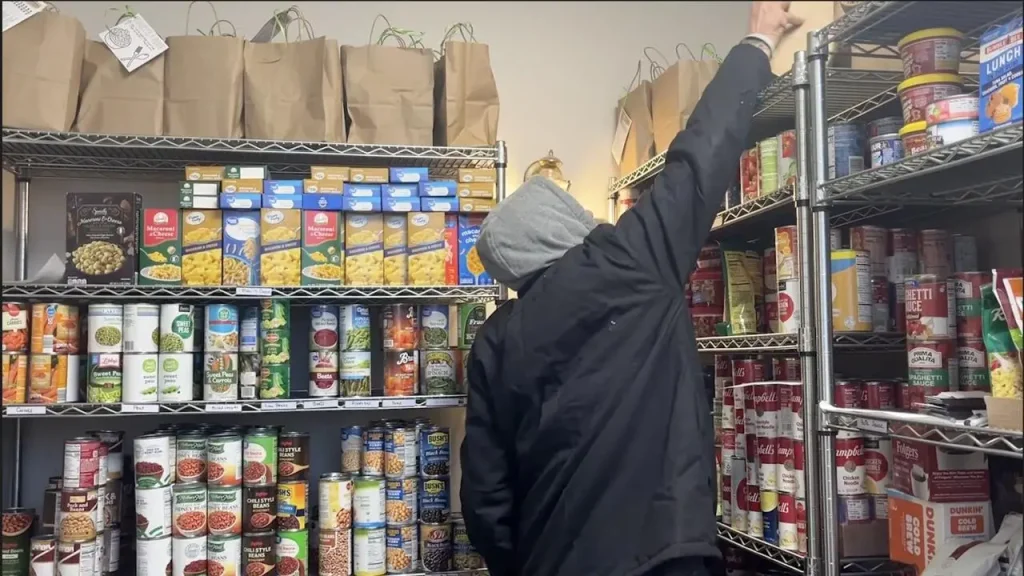The Human Cost of the Federal Shutdown: Food Insecurity in America
As the federal government shutdown stretches into its second month, a humanitarian crisis is unfolding across America. Approximately 42 million low-income Americans, including thousands in Illinois, now face the devastating prospect of losing their Supplemental Nutrition Assistance Program (SNAP) benefits. This isn’t just a political impasse playing out in Washington—it’s a genuine emergency unfolding in communities like Springfield, Illinois, where food pantry lines grow longer each day and vulnerable citizens wonder where their next meal will come from. For people like Lisa Weaving, a cancer survivor on disability, the situation has become dire. “It’s scary,” she explains, noting that after paying her bills, there’s virtually nothing left for food without her SNAP benefits. Her apartment building, home to veterans, seniors, and others with disabilities, is in what she describes as “an uproar” as residents scramble to figure out how they’ll feed themselves. The community’s existing safety nets—local food pantries offering limited supplies once a month—simply weren’t designed to replace a federal nutrition program serving millions.
The ripple effects are already visible throughout communities. Jarid Brown, director of Washington Street Mission in Springfield, reports that local food pantries are being overwhelmed, with some seeing double their usual numbers and completely running out of supplies. “If we double that number, it’s only going to last a few weeks. If we see triple that number come in, we’ll be cleaned out within a couple of weeks,” Brown warns. This sudden surge comes at a particularly challenging time, as those living in poverty were already struggling with inflation and rising utility costs. Brown points out the cruel irony of the situation: “It’s hard enough to climb out of poverty as it is… now you add in rising food prices and rising utility prices. It makes it nearly impossible for anyone to get out of that hole.” For those already living on the edge, the loss of food assistance could be catastrophic, potentially pushing them further into crisis.
The situation has created a sense of desperation that some fear could have broader societal impacts. Weaving voiced concerns shared by many in her community: “This is the first time it’s actually going to hit hard. And to think there are 42 million, they’re saying, that are going to be hungry in a place like Springfield. We do worry that the crime rate might go up because of this.” While acknowledging that there may be some who misuse the system, she emphasizes that the vast majority of recipients genuinely need this assistance to survive. These are real people caught in the crossfire of political battles—cancer patients, veterans, seniors, families with children—all wondering how they’ll manage to eat if the shutdown continues. The human dimension of this crisis extends far beyond statistics and budget battles, affecting the most vulnerable members of society who have the least capacity to withstand such disruptions.
Community organizations are attempting to fill the gap, but the scale of need far exceeds their capacity. Local food pantries designed to provide supplemental assistance are now being asked to serve as primary food sources for thousands of additional people. The mathematics simply doesn’t work. A system that provides ten items per person once a month cannot replace comprehensive nutrition assistance, forcing recipients to “hop from pantry to pantry” in search of enough food to survive. Brown emphasizes that while the shutdown has many impacts, “the greatest impact that we’ve had with the budget shutdown is going to be the SNAP benefits being frozen off.” This humanitarian crisis is developing in real-time, with each passing day pushing more Americans toward food insecurity and potential hunger in one of the wealthiest nations on earth.
The situation has become so dire that Illinois has joined other states in suing the federal government, arguing that state programs simply cannot fill the enormous gap left by suspended SNAP benefits. Brown makes an impassioned plea for prioritizing human needs over political battles: “My hope is that for a minute we can set politics aside and think about what it’s going to take to reopen government and then address the issues that we’re separated on later. But holding individuals who need food assistance hostage for one or two issues, we’re holding service personnel hostage for over one or two issues, that’s not acceptable.” His statement cuts to the heart of the matter—the use of vulnerable citizens as leverage in political negotiations represents a profound moral failure that transcends partisan divides and speaks to fundamental questions about our obligations to one another.
In the meantime, those on the front lines are asking Americans to help in whatever ways they can. Brown suggests that people start locally, donating food or money directly to community organizations already serving those in need. These local efforts, while insufficient to replace federal programs, may help bridge the gap for some of the most vulnerable citizens caught in this unprecedented situation. For people like Weaving and her neighbors, the situation grows more precarious with each passing day. The shutdown has transformed abstract political disagreements into concrete human suffering, revealing the fragility of the social safety net and the interdependence that binds communities together. As food pantries empty and benefits remain frozen, millions of Americans face a question no one in a wealthy nation should have to ask: Where will my next meal come from?


